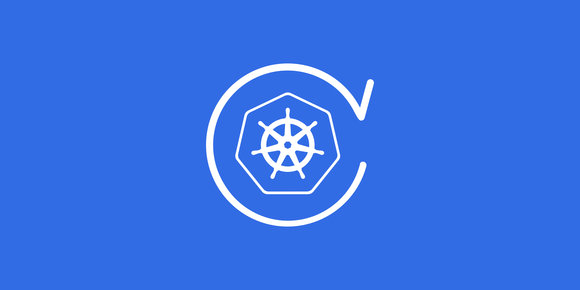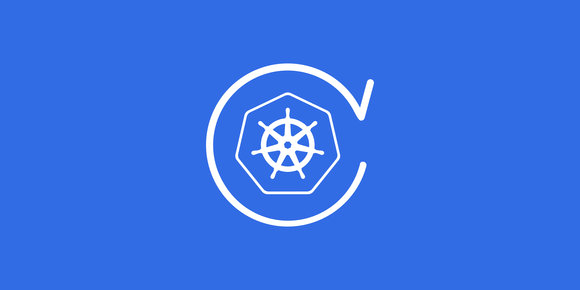
Helm , the package manager for Kubernetes , can be sensitive to the version of Tiller running in cluster, and as a result may require you to install a specific version.
If you've ever seen a helm CLI error such as:
Error: incompatible versions client[v2.14.0] server[v2.13.1]then you've encountered this specific problem, but there are other reasons you may need or want an older version of helm.
The commands
First, you'll want to uninstall any existing version of helm you have - through brew, choco, apt, snap, or any other source. That will help ensure that you don't have multiple copies of helm in your PATH.
Then, find out what version you want, such as 2.13.1 from above, and run the commands:
curl -fsSL -o get_helm.sh https://raw.githubusercontent.com/helm/helm/master/scripts/get
chmod +x get_helm.sh
./get_helm.sh -v v<version>The "v" in front of the version is important, without you'll get an error similar to:
$ ./get_helm.sh -v 2.13.1
Helm 2.13.1 is available. Changing from version v2.17.0.
Downloading https://get.helm.sh/helm-2.13.1-darwin-amd64.tar.gz
SHA sum of /var/folders/9n/lb2q4q1d5xq89tst4vh_7_br0000gp/T/helm-installer-XXXXXX.Vu2ElWsi/helm-2.13.1-darwin-amd64.tar.gz does not match. Aborting.
Failed to install helm with the arguments provided: -v 2.13.1
Accepted cli arguments are:
[--help|-h ] ->> prints this help
[--version|-v <desired_version>]
e.g. --version v2.4.0 or -v latest
[--no-sudo] ->> install without sudo
For support, go to https://github.com/helm/helm.That's it, that's the entire instructions. If you're interested in reproducing the "incompatible versions" error yourself, read on ahead.
Reproducing the incompatible version error
Note: all the CLI output here is from a computer running macOS Catalina, so your output may vary.
First, check out "Getting Started With minikube" to get minikube up and running on your system.

Getting Started With minikube
Nov 1, 2020 · 4 min read
minikube is a tool for running a Kubernetes clusters for local development, and the setup of it is super simple.
Then, we're going to install the old v2.13.1 version of Helm from above:
$ curl -fsSL -o get_helm.sh https://raw.githubusercontent.com/helm/helm/master/scripts/get
$ chmod +x get_helm.sh
$ ./get_helm.sh -v v2.13.1
Downloading https://get.helm.sh/helm-v2.13.1-darwin-amd64.tar.gz
Verifying checksum... Done.
Preparing to install helm into /usr/local/bin
helm installed into /usr/local/bin/helm
$ helm version
Client: &version.Version{SemVer:"v2.13.1", GitCommit:"618447cbf203d147601b4b9bd7f8c37a5d39fbb4", GitTreeState:"clean"}
Error: could not find tillerIn order to install and use an old version of Tiller, we need to use an old version of Kubernetes with minikube:
$ minikube start --kubernetes-version=1.14.9
😄 minikube v1.14.2 on Darwin 10.15.7
✨ Automatically selected the docker driver
👍 Starting control plane node minikube in cluster minikube
🔥 Creating docker container (CPUs=2, Memory=7913MB) ...
🐳 Preparing Kubernetes v1.14.9 on Docker 19.03.8 ...
> kubeadm.sha1: 41 B / 41 B [----------------------------] 100.00% ? p/s 0s
> kubelet.sha1: 41 B / 41 B [----------------------------] 100.00% ? p/s 0s
> kubectl.sha1: 41 B / 41 B [----------------------------] 100.00% ? p/s 0s
> kubeadm: 37.77 MiB / 37.77 MiB [----------------] 100.00% 5.81 MiB p/s 6s
> kubectl: 41.12 MiB / 41.12 MiB [----------------] 100.00% 4.70 MiB p/s 9s
> kubelet: 122.17 MiB / 122.17 MiB [-------------] 100.00% 7.86 MiB p/s 15s
🔎 Verifying Kubernetes components...
🌟 Enabled addons: storage-provisioner, default-storageclass
❗ /usr/local/bin/kubectl is version 1.19.3, which may have incompatibilites with Kubernetes 1.14.9.
💡 Want kubectl v1.14.9? Try 'minikube kubectl -- get pods -A'
🏄 Done! kubectl is now configured to use "minikube" by defaultThen using helm, we're going to install Tiller into our cluster:
$ helm init
Creating /Users/<username>/.helm
Creating /Users/<username>/.helm/repository
Creating /Users/<username>/.helm/repository/cache
Creating /Users/<username>/.helm/repository/local
Creating /Users/<username>/.helm/plugins
Creating /Users/<username>/.helm/starters
Creating /Users/<username>/.helm/cache/archive
Creating /Users/<username>/.helm/repository/repositories.yaml
Adding stable repo with URL: https://kubernetes-charts.storage.googleapis.com
Adding local repo with URL: http://127.0.0.1:8879/charts
$HELM_HOME has been configured at /Users/<username>/.helm.
Tiller (the Helm server-side component) has been installed into your Kubernetes Cluster.
Please note: by default, Tiller is deployed with an insecure 'allow unauthenticated users' policy.
To prevent this, run `helm init` with the --tiller-tls-verify flag.
For more information on securing your installation see: https://docs.helm.sh/using_helm/#securing-your-helm-installation
Happy Helming!We can verify the version of Tiller in the cluster with helm:
$ helm version
Client: &version.Version{SemVer:"v2.13.1", GitCommit:"618447cbf203d147601b4b9bd7f8c37a5d39fbb4", GitTreeState:"clean"}
Server: &version.Version{SemVer:"v2.13.1", GitCommit:"618447cbf203d147601b4b9bd7f8c37a5d39fbb4", GitTreeState:"clean"}Then using a newer version of helm we can see the "incompatible versions" error:
$ ./get_helm.sh -v v2.14.0
Helm v2.14.0 is available. Changing from version v2.13.1.
Downloading https://get.helm.sh/helm-v2.14.0-darwin-amd64.tar.gz
Preparing to install helm and tiller into /usr/local/bin
helm installed into /usr/local/bin/helm
tiller installed into /usr/local/bin/tiller
Run 'helm init' to configure helm.
$ helm list
Error: incompatible versions client[v2.14.0] server[v2.13.1]And if we switch our helm version to the Tiller version in cluster it'll work again:
$ ./get_helm.sh -v v2.13.1
Helm v2.13.1 is available. Changing from version v2.14.0.
Downloading https://get.helm.sh/helm-v2.13.1-darwin-amd64.tar.gz
Preparing to install helm and tiller into /usr/local/bin
helm installed into /usr/local/bin/helm
tiller installed into /usr/local/bin/tiller
Run 'helm init' to configure helm.
$ helm list
(no output because we don't have any releases)



